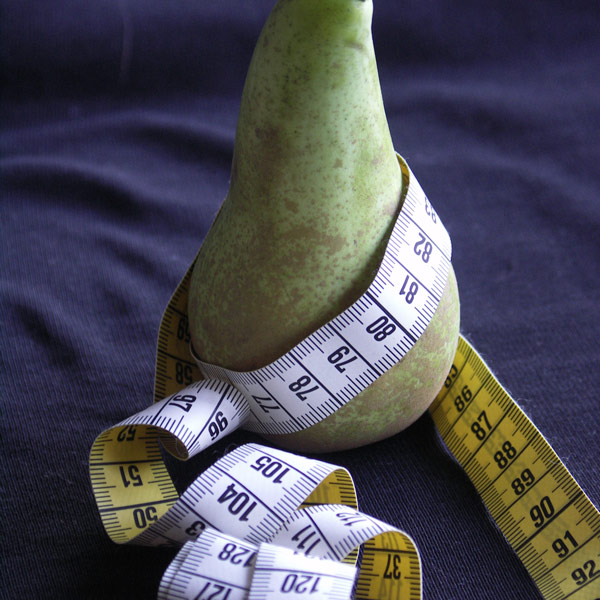
WEDNESDAY, July 14 (HealthDay News) — Middle-aged women who are overweight may have yet another motivation to take off those excess pounds: The more a postmenopausal woman weighs, the worse her memory, researchers have found.
What’s more, the negative impact on memory was more pronounced in “pear-shaped” women who carry excess weight around their hips, and less of a factor in “apple-shaped” women who carry it around their waists, the study authors noted.
In the new study, researchers found that for every one point increase in a woman’s body mass index (BMI), her score on a standard memory test — though still in the normal range — dropped by one point. BMI is a measurement that takes into account height and weight.
The study, which was based on data from nearly 9,000 women who were enrolled in the Women’s Health Initiative, a large government-sponsored study of postmenopausal women, was released online July 14 in advance of publication in the August print issue of the Journal of the American Geriatrics Society.
“This study really underscores the importance of maintaining an ideal body weight,” said lead researcher Dr. Diana Kerwin, assistant professor of medicine in the division of geriatrics at Northwestern University’s Feinberg School of Medicine in Chicago. “Even if a woman feels that she’s generally healthy because her blood pressure and cholesterol levels are good, what these findings suggest is that she also needs to pay attention to her weight, because it’s not only good for her heart, it’s also good for her brain.”
For the study, Kerwin and her colleagues examined data on 8,745 women between the ages of 65 and 79 who had no signs of dementia or other brain abnormalities. In addition to looking at BMI and waist and hip measurements (to determine body fat distribution), they also reviewed the women’s scores on a 100-point cognitive functioning test known as the Modified Mini-Mental Status Examination. Roughly 70 percent of the women were overweight or obese.
After controlling for age, level of education and vascular diseases that have been shown to raise the risk of dementia, such as stroke, the researchers found that the association between obesity and poorer memory and brain function persisted. Kerwin, who conducted the study while a geriatrics researcher at the Medical College of Wisconsin, added that although the women’s scores were still in the normal range, the added weight clearly had a detrimental effect.
Kerwin said more studies are needed to confirm and explain the apparent disparity between pear- and apple-shaped women. But one possibility is that the type of fat that’s deposited on the hips is more likely to release hormones that are detrimental to brain function, she said. A follow-up study now in the planning stages will involve conducting MRIs of women’s bodies, “so we can look at how much abdominal fat they have versus hip fat, and see if there’s any difference in their brain functioning,” Kerwin explained.
This study expands on several others involving body shape, in which obese apple-shaped women — but not pear-shaped women — were found to be at higher risk of diabetes, heart disease and dementia.
“What this study is really telling us is that there’s something about obesity that puts you at risk for dementia, and it’s independent of other factors such as vascular disease,” said Dr. Gary Kennedy, director of geriatric psychiatry at Montefiore Medical Center in New York City.
Kennedy added that he hoped the results would coax more older women to exercise regularly in order to maintain a healthy weight. “This is really a call for women to make an effort to get more active, find an exercise partner, and do something every day,” he said.
More information
The U.S. National Library of Medicine has more about aging changes in body shape.

